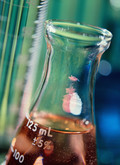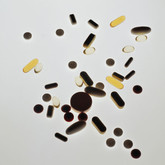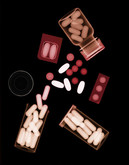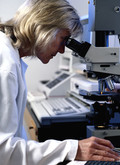Generics/General
Clopidogrel goes off-patent: last of the old-style blockbusters
The blockbuster drug Plavix (clopidogrel), used to prevent clotting in some heart patients, comes off patent in the US on 17 May 2012, bringing to an end the run of spectacularly well-selling traditional medicines.
Also noted on generics: 11 May 2012
Out-of-pocket expenses decline in US
Patients with insurance spent US$1.8 billion less on out-of-pocket expenses for medicines in 2011 compared to 2010. In 2011 patient’s out-of-pocket expenses totalled US$49 billion compared to US$50.8 billion in 2010.
The average co-payment also declined, especially for seniors participating in the Medicare Part D program. The average co-payment for unbranded generics was US$5.63 and US$10.34 for Medicare Part D and other insured patients respectively. This compares to brand-name medicine prices of US$37.61 and US$40.35 respectively. In fact, in 2011, more than 75% of medicines carried a co-payment of US$10 or less.
Source: IMS Institute
Also noted on generics: 13 April 2012
Patents on Taxotere invalid
On 9 April 2012, two patents for sanofi-aventis’ cancer drug Taxotere (docetaxel) were ruled invalid and unenforceable by a US court, coming as good news for generics manufacturers Apotex and Hospira.
Taxotere (docetaxel) is a chemotherapy drug usually given to treat breast cancer, prostate cancer and non-small cell lung cancer. The drug, which is a follow-on from Taxol (paclitaxel), still generated Euros 922 million during 2011 for sanofi-aventis, despite a 57% reduction since the start of generic drug competition in 2010.
Source: Bloomberg
Also noted on generics: 6 April 2012
Tropsium XR patents declared invalid
Watson Pharmaceuticals confirmed in early April 2012 that the United States District Court for the District of Delaware has ruled that four patents for Sanctura XR (trospium chloride extended-release capsules) are invalid. Watson’s Abbreviated New Drug Application for a generic version of the overactive bladder treatment is pending with FDA.
According to IMS Health data Sanctura XR had US sales of approximately US$68 million for the twelve months ending 29 February 2012.
Source: Watson
Savings to be made from generics use in Australia
Increasing the use of generic drugs in Australia could generate ‘hundreds of millions of dollars in savings’ for Australia’s Pharmaceutical Benefits Scheme (PBS) in 2012 [1], ‘eliminating the need for further PBS cuts’, according to Australia’s Generic Medicines Industry Association (GMiA).
Bill introduced to ensure generics get 180-day exclusivity
Congressman Frank Pallone and Congressman Brett Guthrie introduced a new bill to the US Senate on 29 March 2012 to amend the US Food, Drug and Cosmetic Act in order to ensure that generics manufacturers get their 180-day exclusivity.
Also noted on generics: 30 March 2012
Watson in talks to buy Actavis
US generics manufacturer Watson is rumoured to be making a bid for Icelandic generics company Actavis, according to Bloomberg, creating one of the world’s largest generics companies in the process. Watson is reportedly in private talks to pay around Euros 4.5 billion for Actavis, with a deal likely to be announced after Easter.
Source: Bloomberg
Also noted on generics: 22 March 2012
Watson confirms patent challenges
Watson Pharmaceuticals (Watson) confirmed that lawsuits had been filed against the generics company regarding two Abbreviated New Drug Applications it had submitted to FDA.
Forest Laboratories filed a lawsuit against Watson on 13 March 2012 to try to prevent a generic version of Bystolic (nebivolol) used for treatment of hypertension, until the ‘040’ patent that Forest licenses from Janssen Pharmaceutica expires in December 2021.
Abbott Laboratories filed a lawsuit against Watson on 16 March 2012 to prevent commercialisation of a generic version of Niaspan (Niacin) extended release tablets until the ‘428’ and ‘035’ patents expire in September 2013.
Source: Watson
Generics saved Germany more than 25% in 2011
The increased use of generics in Germany has brought about record savings of more than 25% in 2011 compared with 2010. The increased savings have been attributed to the success of measures put in place by the German Government to encourage generics substitution and competition in the public health insurance funds off-patent market.
Generics reach 80% and play a critical role in reducing costs
Prescription drug spending in the US reached US$307 billion in 2010–an increase of US$135 billion since 2001–and comprised approximately 12% of all healthcare spending in the country, according to a report published on 31 January 2012 by the US Government Accountability Office (GAO).








